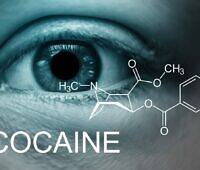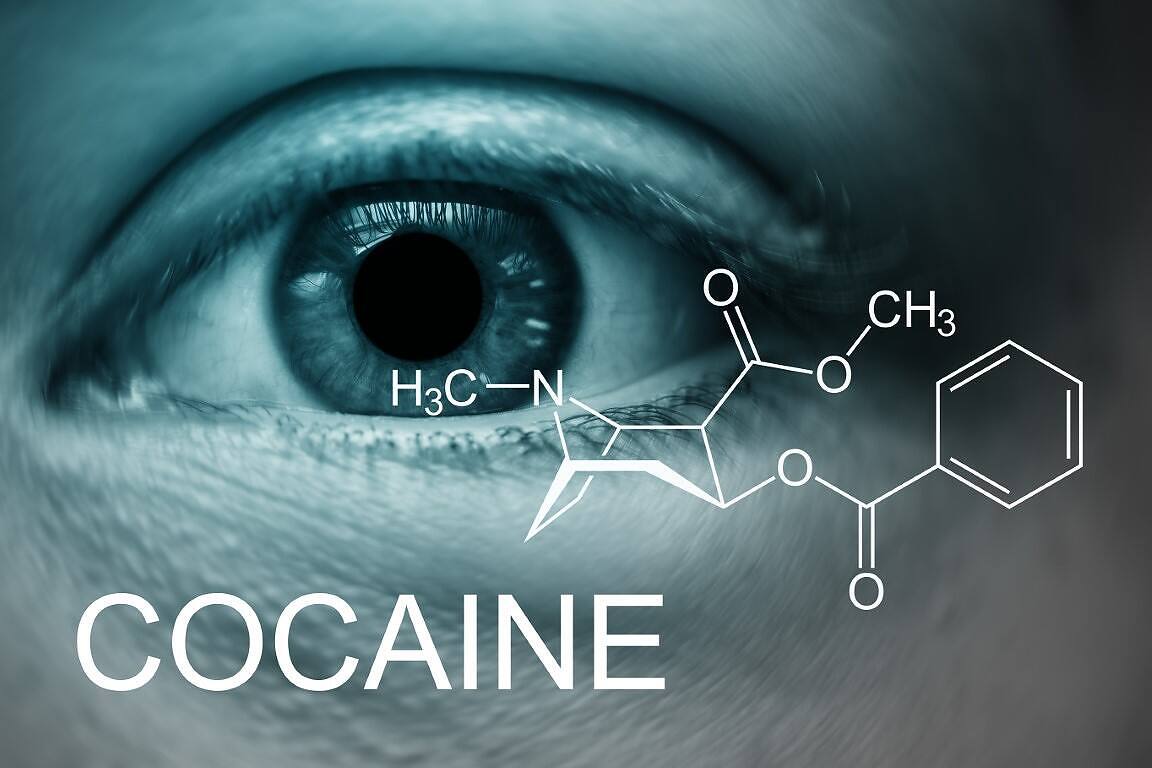
Understanding Cocaine Addiction: Signs, Symptoms, and Long-Term Effects
Cocaine addiction is a serious and complex issue affecting millions worldwide. This article aims to provide a clear, comprehensive look at the signs, symptoms, and long-term effects of cocaine addiction. We’ll explore how to recognise addiction early and why timely treatment is crucial. Our goal is to inform and support those affected by cocaine addiction, whether directly or indirectly, with accurate and empathetic information.

What Is Cocaine Addiction?
Cocaine addiction is a complex disorder that develops from repeated use of cocaine, a powerful stimulant derived from coca plant leaves. It’s one of the most addictive substances known, capable of hijacking the brain’s reward system with alarming speed.
When someone uses cocaine, their brain experiences a flood of dopamine, a neurotransmitter associated with pleasure and reward. This intense high can create a strong desire to repeat the experience, leading to a cycle of use that becomes increasingly difficult to break.
Cocaine comes in two main forms:
Hydrochloride Salt: This white, powdery form is typically snorted or dissolved and injected. Injecting cocaine results in more intense effects but for a shorter duration compared to other methods like snorting or smoking, and it carries a higher risk of overdose. It’s absorbed quickly into the bloodstream, producing a rapid and intense high.
Freebase (Crack): This form is processed to create a rock crystal that’s usually smoked. It reaches the brain even faster than the powdered form, creating an intense but short-lived high.
The form of cocaine used can affect how quickly addiction develops and the specific health risks involved. Both forms, however, carry a high risk of addiction and can cause severe physical and psychological damage.
Cocaine addiction isn’t just about physical dependence. It profoundly impacts a person’s behaviour, relationships, and overall quality of life. Understanding these aspects is crucial for recognising the signs of addiction and seeking appropriate help.
Mechanism of Cocaine Addiction
Cocaine use interferes with the brain’s natural reward system, leading to profound changes that drive the cycle of addiction.
When a person uses cocaine, the drug produces an intense euphoria by flooding the brain with dopamine, a neurotransmitter associated with pleasure and reward. Normally, nerve cells release small amounts of dopamine and then recycle it. However, cocaine blocks this recycling process, causing an excessive buildup of dopamine in the synapses.
This flood of dopamine reinforces cocaine use, encouraging the user to seek more cocaine to recreate the pleasurable experience. Over time, chronic use alters the brain’s reward system, making it less responsive to natural sources of pleasure and increasingly dependent on the drug to feel good.
Cocaine addiction also involves changes in the brain’s glutamate system, which plays a crucial role in learning and memory. These neuroadaptations contribute to intense cravings and the high risk of relapse, even after long periods of abstinence.
The rapid onset and short duration of cocaine’s effects, especially when smoking crack cocaine, can lead to frequent use and a quick escalation to cocaine addiction. This pattern of use can swiftly lead to both physical and psychological dependence.
As cocaine abuse continues, the brain adapts to the constant presence of the drug. This leads to tolerance, where more cocaine is needed to achieve the same high. Simultaneously, sensitisation occurs, where even small amounts of cocaine or environmental cues associated with its use can trigger intense cravings.
Signs and Symptoms of Cocaine Addiction
Cocaine use disorder manifests in various ways, affecting behaviour, physical health, cognitive function, and social relationships.
Behavioural Signs
Cocaine users often exhibit increased aggression and hyperactivity. They may engage in risky behaviours, lie compulsively, or resort to stealing to support their habit. Rapid, non-stop speech is common, as cocaine frequently produces a heightened state of alertness and energy.
Physical Signs
Taking cocaine regularly can lead to noticeable physical symptoms. These may include frequent nosebleeds (especially when snorting powder cocaine), excessive sweating, significant weight loss, and dilated pupils. In severe cases, cocaine abuse can cause seizures. Chronic cocaine use also increases the risk of serious health problems like high blood pressure, heart attacks, and strokes.
Cognitive Signs
Cocaine misuse profoundly affects mental health. Users often experience extreme mood swings, cycling between euphoria and irritability or depression. Paranoia is common, and some individuals may experience hallucinations or even cocaine-induced psychosis, losing touch with reality. These mental health problems can be extremely dangerous, both for the user and those around them.
Psychosocial Signs
As cocaine addiction progresses, individuals often lose interest in activities they once enjoyed. Depression and anxiety are common, and mood swings become more pronounced. Cocaine dependence can severely impact personal relationships and professional life, leading to social isolation and job loss.
Other signs of cocaine addiction include:
Neglecting responsibilities at work, school, or home
Continuing cocaine use despite awareness of physical or psychological problems it causes
Experiencing cocaine withdrawal symptoms when not using
Mixing cocaine with other substances, like alcohol, to enhance or prolong its effects
It’s important to note that not all cocaine users will display all these signs, and the severity can vary. However, if you recognise several of these early warning signs or symptoms in yourself or someone else, it may indicate a cocaine use disorder. Seeking help from healthcare professionals or addiction specialists is crucial for proper diagnosis and treatment.
Long-Term Effects of Cocaine Use
Chronic cocaine use can have devastating long-term consequences on both physical and mental health, as well as social and professional life. Understanding these effects is crucial for recognising the full impact of cocaine addiction.
Physical Health Consequences
Prolonged cocaine abuse can cause irreversible damage to multiple organ systems:
Cardiovascular system Chronic cocaine use significantly increases the risk of heart disease, including heart attacks, arrhythmias, and cardiomyopathy. High blood pressure is a common long-term effect, which can lead to further complications.
Respiratory system Smoking crack cocaine can cause severe lung damage, leading to conditions like “crack lung” and increasing the risk of respiratory infections.
Neurological system Cocaine use can lead to lasting changes in brain structure and function. This may result in cognitive impairments affecting memory, attention, and decision-making abilities. Remarkably, chronic cocaine use is associated with an increased risk of movement disorders, including Parkinson’s disease.
Gastrointestinal system Long-term cocaine misuse can lead to reduced blood flow to the intestines, potentially causing ulcers or even tissue death.
Nasal and oral health Snorting cocaine can lead to chronic sinusitis, loss of sense of smell, and damage to the nasal septum. Smoking crack cocaine often results in severe dental problems.
Psychological and Social Consequences
The long-term effects of cocaine addiction extend far beyond physical health:
Mental health problems Chronic cocaine use can exacerbate or trigger various mental disorders, including depression, anxiety, and psychosis. Some individuals may experience persistent paranoia or hallucinations even after stopping cocaine use.
Cognitive decline Long-term cocaine abuse can lead to significant cognitive impairments, affecting memory, attention, and decision-making abilities. These changes can persist even after achieving abstinence.
Relationship difficulties Cocaine addiction often strains personal relationships, leading to trust issues, conflicts, and social isolation.
Professional setbacks The impact of cocaine use disorder on work performance can result in job loss, decreased productivity, and limited career advancement opportunities.
Financial strain The cost of maintaining a cocaine habit, combined with potential job loss, can lead to severe financial difficulties.
Legal issues Cocaine use, possession, and distribution are illegal in most countries, potentially leading to arrest, fines, and imprisonment.
Polysubstance use Many individuals with cocaine use disorder also develop a dependence on other substances, particularly alcohol, complicating treatment and recovery.
While some of these effects may improve with abstinence and treatment, others may be long-lasting or permanent. This underscores the importance of early intervention and comprehensive treatment for cocaine addiction.
Recovery from long-term cocaine use is challenging but possible with appropriate support and treatment. A combination of behavioral therapies, support groups, and in some cases, medication-assisted treatment can help individuals overcome cocaine addiction and mitigate its long-term effects.
Treating Cocaine Use Disorder
Effective treatment for cocaine addiction typically involves a combination of approaches tailored to individual needs. Here are the main options
Rehabilitation Programmes at Detox Plus
At Detox Plus, we understand that taking the first step towards recovery can be daunting. That’s why we’re here to support you every step of the way. Our compassionate team of addiction specialists is ready to help you or your loved one begin the journey to a cocaine-free life.
Call us today to discuss your personalised treatment options. Our dedicated admissions team is available 24/7 to:
Provide a confidential assessment of your situation
Explain our range of cocaine addiction treatment programmes
Answer any questions you may have about the recovery process
Discuss financing options and insurance coverage
Help you take the first step towards a healthier, happier life
Don’t let cocaine addiction control your life any longer. Contact Detox Plus now on 02072052734 or find treatment in your area to start your recovery journey. Remember, seeking help is a sign of strength, not weakness. We’re here to support you in reclaiming your life from cocaine addiction.
Behavioural Therapies
Cognitive Behavioral Therapy (CBT) This widely-used approach helps individuals identify and change thoughts and behaviours related to cocaine use. CBT teaches coping skills and strategies to manage cravings and avoid high-risk situations.
Other Evidence-Based Therapies
Contingency Management Uses tangible rewards to reinforce positive behaviours like staying drug-free.
Motivational Interviewing Helps individuals resolve ambivalence about change and strengthen motivation for recovery.
The Matrix Model Combines behavioural therapy, family education, individual counselling, and 12-step support.
Support Groups and Peer Support
Support groups provide a sense of community and shared experience. Options include:
Narcotics Anonymous (NA) A 12-step program for individuals recovering from drug addiction.
SMART Recovery Offers a science-based approach to behaviour change.
Cocaine Anonymous Specifically focused on cocaine and crack cocaine addiction.
Medical Interventions for Cocaine Withdrawal and Co-occurring Issues
Managing withdrawal symptoms
Treating co-occurring mental health disorders like depression or anxiety
Addressing other substance use disorders that may coexist with cocaine addiction
Treatment plans are often individualised, combining elements from these approaches based on the person’s specific needs and circumstances. The National Institute on Drug Abuse emphasises that successful treatment often requires ongoing care and may involve multiple interventions.
Remember, recovery from cocaine addiction is possible with the right support and treatment. If you or someone you know is struggling with cocaine use, don’t hesitate to reach out to a healthcare professional or addiction specialist for guidance.
Conclusion
Cocaine addiction is a serious and complex disorder that can have devastating effects on physical health, mental well-being, and social relationships. It alters brain chemistry, leading to intense cravings and compulsive drug-seeking behaviour. The risks associated with cocaine use, including overdose and long-term health complications, underscore the importance of understanding this addiction.
Key points to remember
Cocaine use disorder is characterised by changes in brain function and behaviour.
Withdrawal symptoms and overdose risks are significant concerns.
Long-term cocaine use can lead to severe physical and psychological consequences.
Effective treatment options are available, including behavioural therapies and support groups.
If you or someone you know is struggling with cocaine use, don’t hesitate to seek help. Professional treatment can make a crucial difference in managing withdrawal, preventing relapse, and addressing underlying issues. Remember, recovery is possible with the right support and resources.
Take action today
Call Us to discuss your needs and concerns
Explore treatment options in your area.
Contact a support group like Narcotics Anonymous or SMART Recovery.
Cocaine addiction is a challenging condition, but with proper treatment and support, individuals can overcome it and rebuild their lives. Don’t let fear or stigma prevent you from seeking the help you or your loved one needs. The path to recovery starts with a single step.

